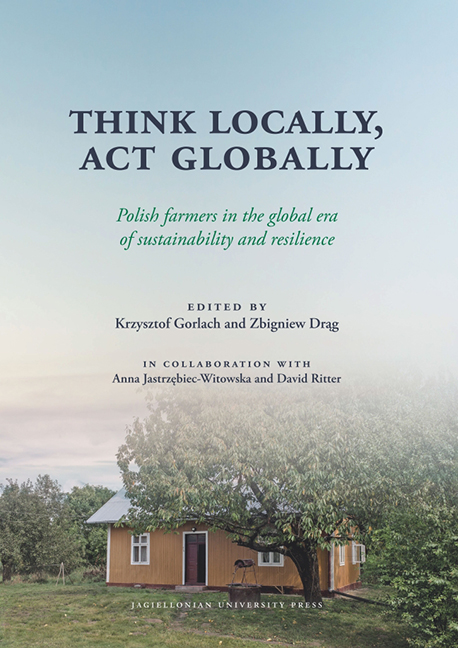Book contents
- Frontmatter
- Contents
- Family Farming: A foreword
- An Introductory Letter from the First Editor: Where the horses, cows, and even cats had their own names
- Part One Theoretical and Methodological Considerations
- Part Two Changes in the Post-Communist Transformation
- Part Three Diversification of Farmers’ Strategies
- Part Four Some Independent Studies
- Conclusion: Some Final Remarks from the First Editor
- Afterword: Renewing a Sociology of Agriculture
- Biograms
Chapter Eleven - Daily Life Strategies among Farming Families in Poland of 2017
Published online by Cambridge University Press: 16 July 2022
- Frontmatter
- Contents
- Family Farming: A foreword
- An Introductory Letter from the First Editor: Where the horses, cows, and even cats had their own names
- Part One Theoretical and Methodological Considerations
- Part Two Changes in the Post-Communist Transformation
- Part Three Diversification of Farmers’ Strategies
- Part Four Some Independent Studies
- Conclusion: Some Final Remarks from the First Editor
- Afterword: Renewing a Sociology of Agriculture
- Biograms
Summary
Introductory Remarks
The analyses presented in the previous chapters dealt with various aspects of functioning of family farms, their economic and social condition, as well financial situation, all of which affected their development strategies. The farmers, as a social category, were also the subject of the analyses and attention was given to their socio-demographic characteristics, as well as the professional and social roles they fulfilled. Numerous analyses addressed various aspects of the functioning of the farms, including their material, social, and demographic situation. In this chapter, attention will be given to farmers and their families in a different context, namely, the context of their everyday life and its conditions in the contemporary globalized world. Both of these terms, quality of life and globalization, are central here and could be the subject of interest of representatives of numerous academic disciplines. Globalization, although it prompts great interest from economists, also attracts the attention of lawyers, political scientists, pedagogy experts, psychologists and, especially, sociologists (see, e.g., Beck, 1992, 2000; Bauman, 1998, 2000, 2005, 2007; Stiglitz, 2002; Domański&Pokropek, 2011; Chimiak & Fronia, 2012; Wasilewski, 2014; Walas- -Trębacz, 2017). Globalization involves processes such as:
… flow of people, capital, commodities and information, which as a consequence increases dependencies between states and economies and leads to the emergence of culture that goes beyond national cultures (Domański, 2011, p. 10).
These processes have concrete social consequences for family farms, as well as the members of farm households, and the way they reach farms and affect their functioning is presented in an earlier chapter of this publication. As stated by Polish sociologist Jacek Wasilewski,
… phenomena and social processes occur that we, as individuals and members of social groups, have no control over them. They are imposed on us, happen outside of the realm of possibility of our influence but—whether we want it or not—impact our lives, force changes, get us out of the routine, put us in new situations and generally: demand our reactions, whether adapting to changing external conditions or fighting with them. Generally, we don't like when things go that way. We like stabilization, predictability, repetition and order (Wasilewski, 2014, p. 7).
- Type
- Chapter
- Information
- Think Locally, Act GloballyPolish farmers in the global era of sustainability and resilience, pp. 459 - 518Publisher: Jagiellonian University PressPrint publication year: 2021

